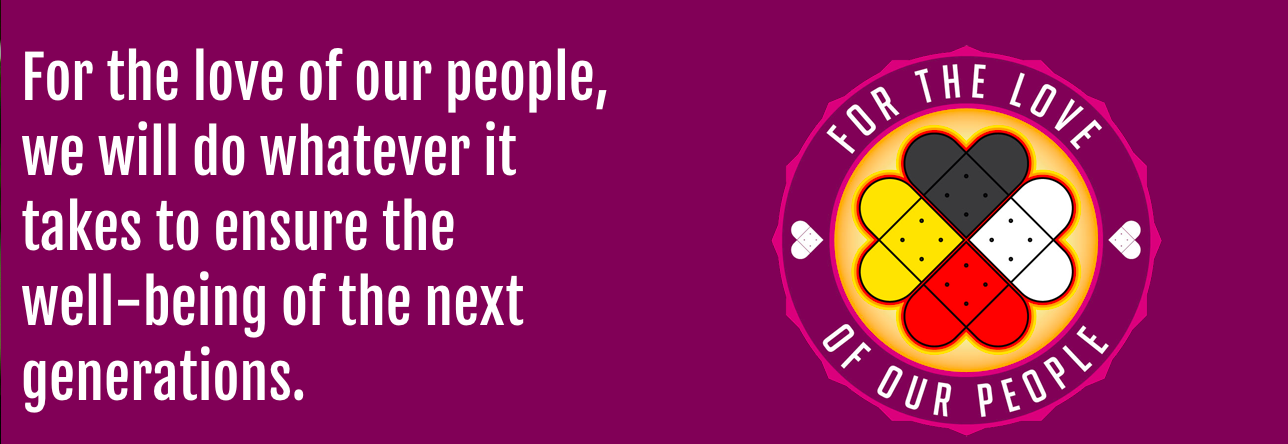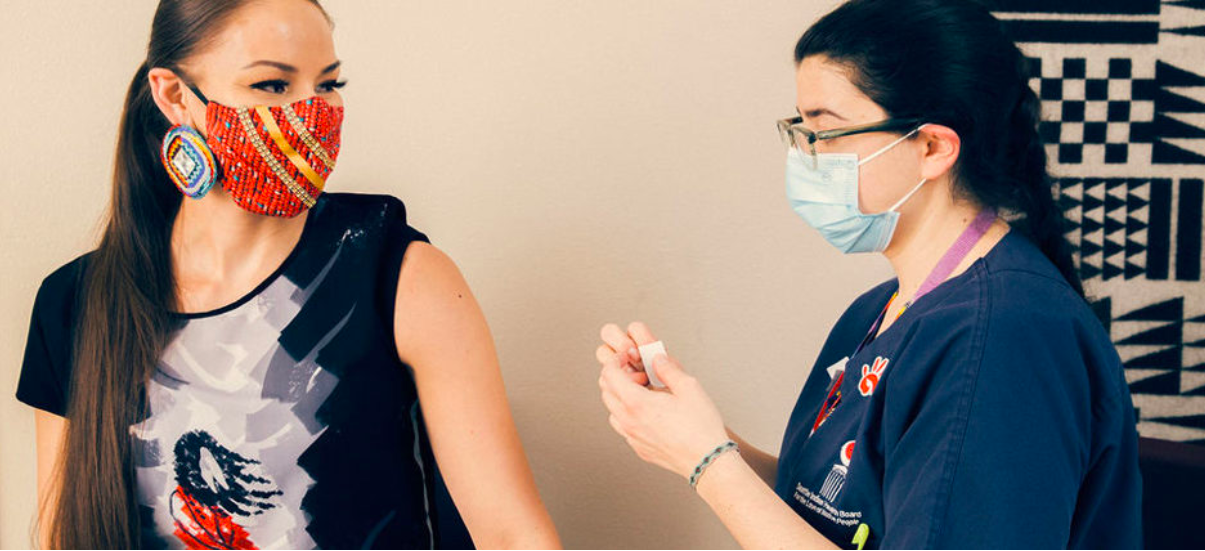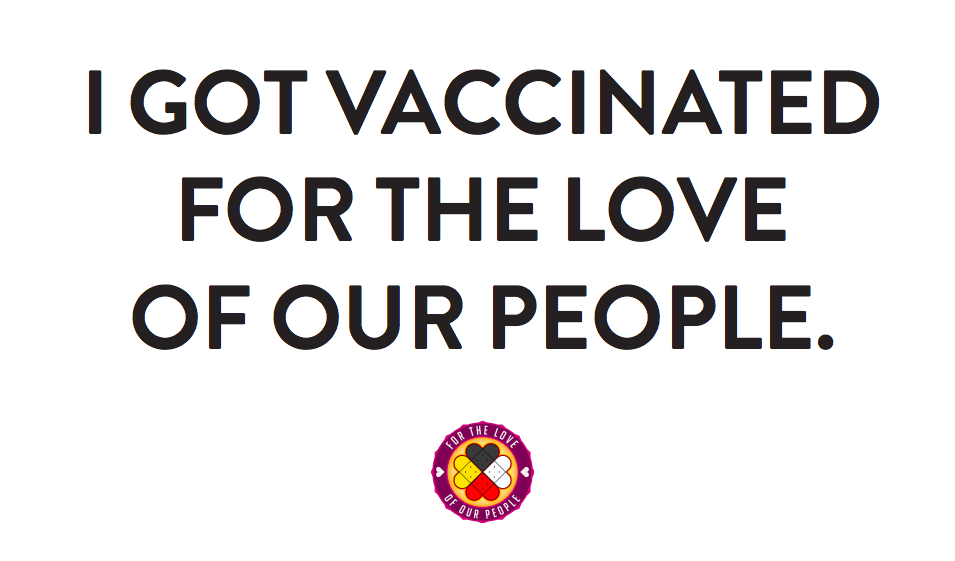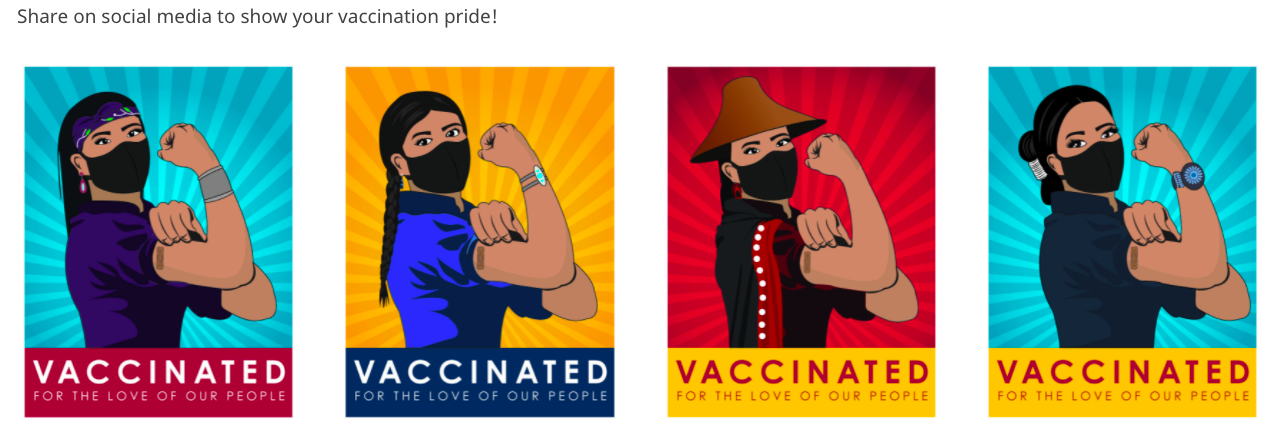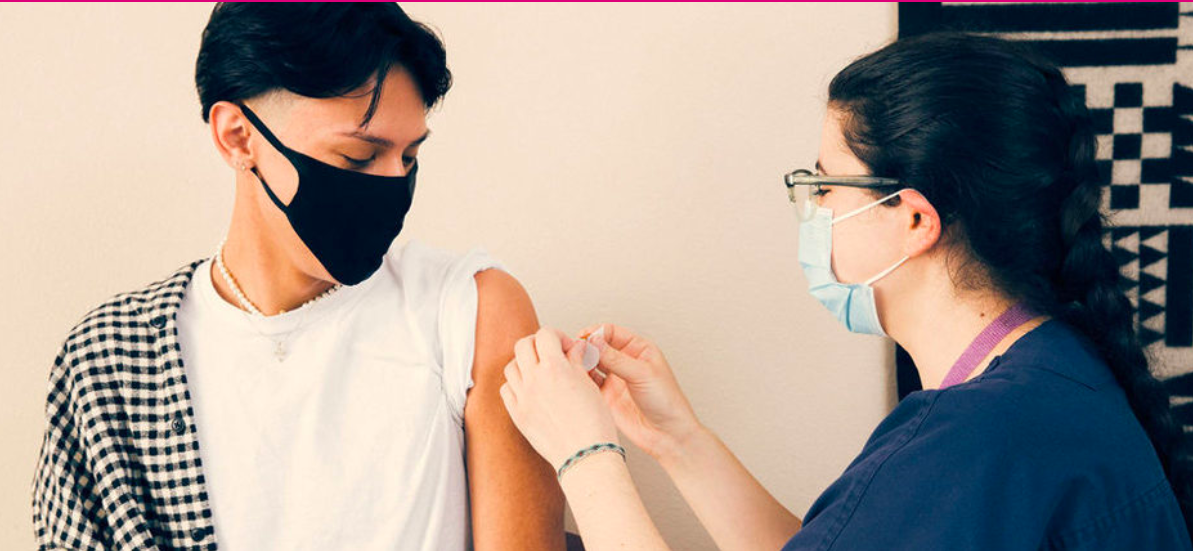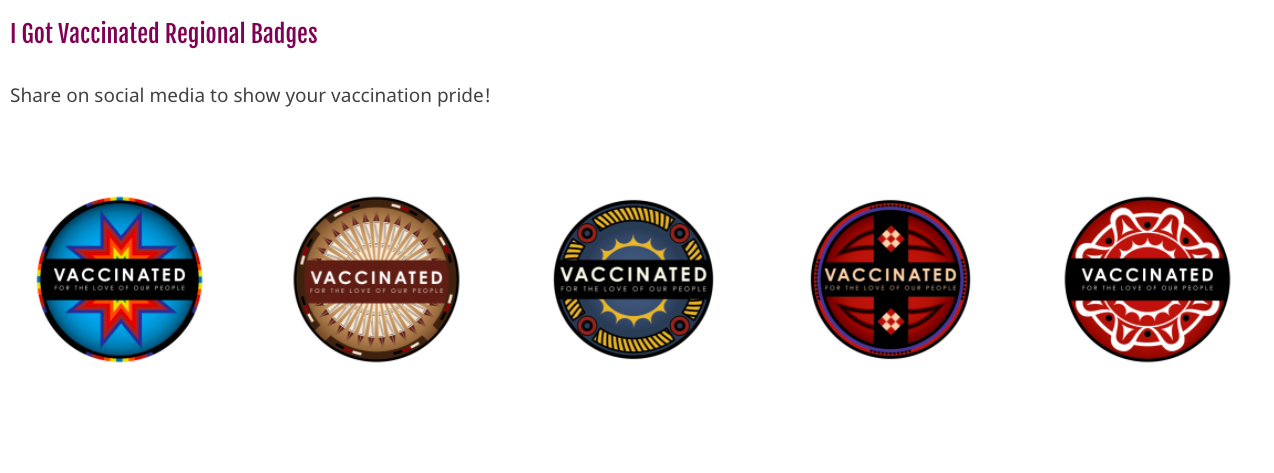COVID-19 RESOURCES
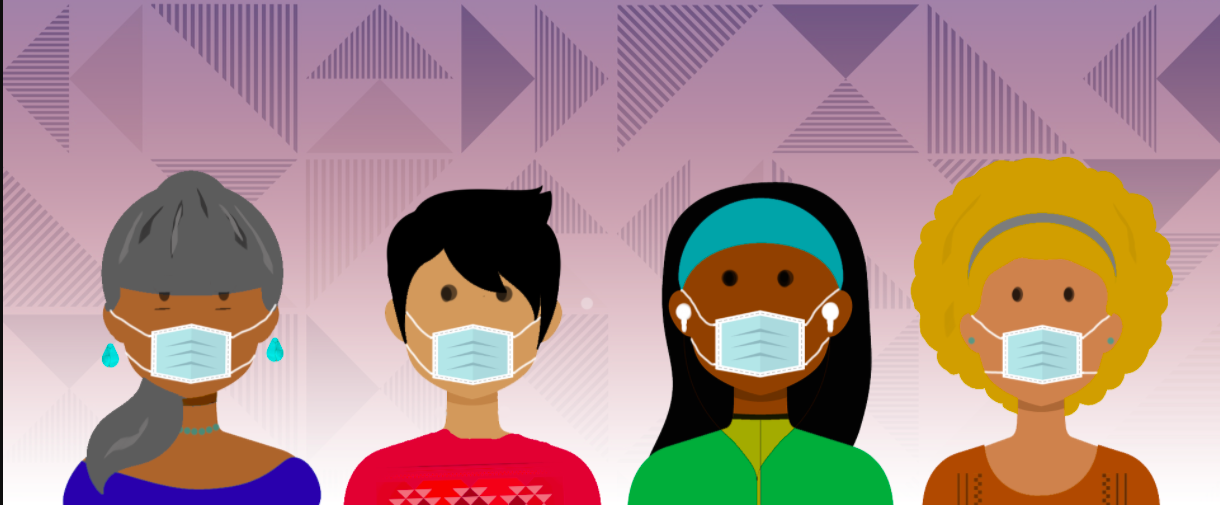
Centers for Disease Control and Prevention Resources:
UNITY PARTNERS
- UNITY has partnered with Bowman Performance Consulting, to gather UNITY youth pandemic experiences through the Youth and Young Adults COVID-19 Survey (YYA) Our goal is to better understand the experiences young people are having during the COVID-19 pandemic so that we can develop tools to help better serve their health throughout this pandemic. We would love to hear from you!
- IllumiNative and Urban Indian Health Institute have partnered with UNITY to help inform Native youth.
They have developed data-driven COVID-19 vaccination messaging, leading to the development of the For the Love of Our People campaign. This campaign brings together Native health experts and creatives to provide engaging, up-to-date information about COVID-19 vaccines and other COVID-19-related topics.
CURRENT DELTA UPDATES:
- The Delta variant is more contagious: The Delta variant is highly contagious, more than 2x as contagious as previous variants.
- Some data suggest the Delta variant might cause more severe illness than previous strains in unvaccinated persons. In two different studies from Canada and Scotland, patients infected with the Delta variant were more likely to be hospitalized than patients infected with Alpha or the original virus strains.
- Unvaccinated people remain the greatest concern: Although breakthrough infections happen much less often than infections in unvaccinated people, individuals infected with the Delta variant, including fully vaccinated people with symptomatic breakthrough infections, can transmit it to others. CDC is continuing to assess data on whether fully vaccinated people with asymptomatic breakthrough infections can transmit. However, the greatest risk of transmission is among unvaccinated people who are much more likely to contract and therefore transmit the virus.
- Fully vaccinated people with Delta variant breakthrough infections can spread the virus to others. However, vaccinated people appear to be infectious for a shorter period: Previous variants typically produced less virus in the body of infected fully vaccinated people (breakthrough infections) than in unvaccinated people. In contrast, the Delta variant seems to produce the same high amount of virus in both unvaccinated and fully vaccinated people. However, like other variants, the amount of virus produced by Delta breakthrough infections in fully vaccinated people also goes down faster than infections in unvaccinated people. This means fully vaccinated people are likely infectious for less time than unvaccinated people.
HELPFUL RESOURCES
Indian Health Services (IHS)
Johns Hopkins Center for American Indian Health
COVID-19 Materials Developed for Tribal Use
Mental Health Technology Transfer Center Network (funded by SAMHSA)
National American Indian and Alaska Native, Resources for Mental Health Care Providers during COVID-19
National Congress of American Indians
COVID-19: Resources for Indian Country
National Indian Health Board (NIHB)
COVID-19 Tribal Resource Center
Native Americans in Philanthropy
Native Governance Center
Indigenized Communication During COVID-19
StrongHearts Native Helpline
Domestic Violence and Dating Violence Helpline for American Indians and Alaska Natives
The CARES Act
SEC 5001 – The Coronavirus Relief Fund
Our smallest warriors, our strongest medicine: Overcoming COVID-19
Feeding America
Vaccines
Vaccines in the US are highly effective, including against the Delta variant
- Vaccines continue to reduce a person’s risk of contracting the virus that causes COVID-19, including this variant. The COVID-19 vaccines authorized in the United States are highly effective at preventing severe disease and death, including against the Delta variant. But they are not 100% effective and some fully vaccinated people will become infected (called a breakthrough infection) and experience illness. For such people, the vaccine still provides them strong protection against serious illness and death.
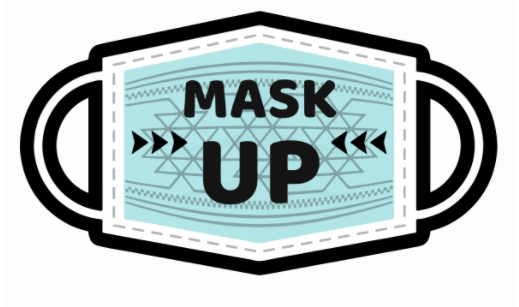
Masks
Given what we know about the Delta variant, vaccine effectiveness, and current vaccine coverage, layered prevention strategies, such as wearing masks, are needed to reduce the transmission of this variant
- At this time, as we build the level of vaccination nationwide, we must also use all the prevention strategies available, including masking indoors in public places, to stop transmission and stop the epidemic.
- Vaccines are playing a crucial role in limiting the spread of the virus and minimizing severe disease. Although vaccines are highly effective, they are not perfect and there will be vaccine breakthrough infections. Millions of Americans are vaccinated, and that number is growing. This means that even though the risk of breakthrough infections is low, there will be thousands of fully vaccinated people who become infected and able to infect others, especially with the surging spread of the Delta variant. Low vaccination coverage in many communities is driving the current rapid and large surge in cases associated with the Delta variant, which also increases the chances that even more concerning variants could emerge.
Frequently Asked Questions (FAQs)

Last updated: 5/17/21
It’s completely understandable to have questions about the state of the pandemic, be confused by all the information, and be nervous about the vaccines. We had Native health experts answer some common questions to help make sense of the current situation.
How do I get a vaccine?
The CDC’s VaccineFinder website can help you find locations offering vaccines near you so that you can schedule an appointment. Most clinics and pharmacies which offer COVID-19 vaccines have a phased plan with the ages they currently service listed on their website. You can check these websites for updated information on eligibility and appointment availability.7
How much does a vaccine cost?
Nothing. It is free, even if you do not have insurance. However, if you do have insurance, you can bring it with you to your vaccination appointment and the clinic can charge your insurance. This will have no effect on your premium whatsoever.3
Why should I get the COVID-19 vaccine?
Getting the COVID-19 vaccine significantly decreases your chances of developing severe illness or dying from COVID-19. Although there is growing evidence that COVID-19 vaccination may prevent you or your loved ones from getting COVID-19, it’s still important to practice the 3 W’s—wash your hands, wear a mask, watch your distance—so that you can protect yourself and others in the community! 3
I have already had COVID-19, do I need a vaccine?
Yes. It’s possible to become reinfected after you have recovered from a previous COVID-19 infection. It’s also important to keep practicing the 3 W’s—washing your hands, wearing a mask, and watching your distance—even if you’ve already had COVID-19. You can’t always know the vaccine status of those around you and keeping our loved ones and communities safe is important! 3
But if I already had COVID-19, don’t I have antibodies that protect me? Why do I need a vaccine?
At this time, it is unknown how long the antibodies your body produced in response to COVID-19 last. It is also unknown if antibodies for COVID-19 will give you lasting immunity.1 However, not all antibodies stay around forever, which is why it’s important to give your body the help it needs to protect you—which protects your loved ones and community—from any future COVID-19 infection. Practicing the 3 W’s—washing your hands, wearing a mask, and watching your distance—as well as getting a COVID-19 vaccine are all things you can do to protect your communities!
What are the differences between the vaccines?
All currently authorized COVID-19 vaccines are safe and effective; the CDC does not recommend one vaccine over another. The available COVID-19 vaccines use mRNA and viral vectors, scientific technologies that have been studied for decades, to help our bodies develop immunity against severe future COVID-19 infections.
Pfizer-BioNTech and Moderna vaccines require two doses, while the Johnson and Johnson vaccine requires one dose. For the Pfizer-BioNTech vaccine, plan to return 21 days after receiving the first dose. For the Moderna vaccine, plan to return 28 days after receiving the first dose. The Pfizer-BioNTech is the only vaccine currently available for those 12 and older. Moderna and Johnson and Johnson are available for those 18 and older. For all three vaccines, you are considered fully vaccinated two weeks after your final shot. None of the vaccines make you sick with COVID-19 or change your DNA.4, 9, 10
What are the side effects of the vaccines?
Side effects from COVID-19 vaccines are typical and signal that the body is building protection against the virus that causes COVID-19. Common side effects that have been reported after receiving COVID-19 vaccines include:
- pain, swelling, or redness at the injection site.
- headache.
- tiredness.
- muscle.
- chills or fever.
- nausea.2
These symptoms tend to resolve within a few days. Call your provider if any side effects do not go away. You can also report any side effects to:
- CDC at 1-800-822-7967.
- FDA/CDC Vaccine Adverse Event Reporting System (VAERS) at 1-800-822-7967.
- Pfizer Inc. at 1-800-438-1985 for side effects from the Pfizer vaccine.
- ModernaTX, Inc. at 1-866-MODERNA (1-866-663-3762) for side effects from the Moderna vaccine.
- Janssen Biotech, Inc. at 1-800-565-4008 for side effects from the Johnson and Johnson vaccine.9, 10
While more serious side effects have been reported among adults, these are generally considered rare and it is currently not known whether they were caused by the vaccine. For youth ages 12–15 years of age who are eligible to receive the Pfizer vaccine, clinical trials showed no notable serious adverse events patterns between those who received the vaccine and those who did not.9
If you have other questions or concerns, it’s always good to check with your provider. You can also visit:
- CDC’s website for information about COVID-19 vaccines and their possible side effects.
- FDA’s website for information about COVID-19 vaccines, vaccine regulations, and Emergency Use Authorizations (EUAs).
- Pfizer’s website or call them at 1-877-829-2619.
- Moderna’s website.
- VAERS’ website. For the first line of box #18 of the report form, include “[Pfizer/Moderna/Janssen] COVID-19 Vaccine EUA.”
The vaccines were developed very fast. Are they safe?
Yes. All of the vaccines which are currently available in the U.S. underwent clinical trials where both CDC and FDA closely monitored the results. They have declared that each vaccine is safe and that the benefits of receiving the vaccines outweigh the risk of rare but severe side effects like blood clotting, which you may have heard about in the news.4, 7
Do I need one shot or two?
The Pfizer and Moderna vaccines are issued in a series of two shots. For Pfizer, you will return 21 days after your first shot for the second one. For Moderna, you will return 28 days later.
The only vaccine currently available in the U.S. as a single shot is the Johnson and Johnson vaccine.4
![]()
I’m afraid of getting my second vaccine shot. What hAPPENS IF I DON’T?
The first shot of both the Pfizer and Moderna vaccines does not give you full protection. You can only get full protection if you receive both shots. However, it’s okay to be a little nervous or afraid of getting a second vaccine shot, especially because of all the people who have talked about their side effects. Know that most cases of side effects resolve in a few days and that you are not alone.4, 5
Will the Johnson and Johnson vaccine give me blood clots?
The chances of getting a blood clot as a result of the Johnson and Johnson vaccine is very, very low. However, women younger than 50 years old especially should be aware of the rare but increased risk of blood clots.
Monitor yourself for possible symptoms of a blood clot with low platelets for three weeks after receiving the Johnson and Johnson vaccine. Possible symptoms include:
- Severe or persistent headaches or blurred vision.
- Shortness of breath.
- Chest pain.
- Leg swelling.
- Persistent abdominal pain.
- Easy bruising or tiny blood spots under the skin of the injection site.
If you develop one or more of these symptoms, you should seek medical care right away.4
Should I be concerned that the use of the Johnson and Johnson vaccine was paused?
It’s okay to feel a little nervous about the Johnson and Johnson vaccine because of the pause in April 2021. Both CDC and FDA have recommended that the use of the Johnson and Johnson vaccine resume as all data shows that known and potential benefits outweigh its known and potential risks. However, women younger than 50 years old especially should be aware of the rare but increased risk of blood clots, and that other COVID-19 vaccines where this risk hasn’t been observed are available.11
Pausing the use of the vaccine allowed the CDC to communicate with healthcare providers about the potential risks of the vaccine and emphasize how important it is to report any severe events. It also gave healthcare providers the opportunity to make sure that they were prepared to treat people in the event of severe side effects such as blood clots.
Do the vaccines cause sterilization?
No. There is no link between vaccines and sterilization or infertility. The vaccine material never enters the part of the cell where DNA is stored, so it cannot alter your DNA or genetic material. In fact, doctors even recommend pregnant people to take certain vaccines before and during pregnancy to protect both themselves and their unborn children from viruses! You may have heard of doctors recommending people who plan to become pregnant to get the measles, mumps, and rubella (MMR) vaccine at least one month before pregnancy, while CDC recommends that every pregnant person get the Tdap vaccine (which protects against three potentially life-threatening bacterial diseases: tetanus; diphtheria; and pertussis, or whooping cough) during every pregnancy.2, 7, 8
What if I have a pre-existing health condition?
If you or someone you know has an underlying health condition it is still possible to get the COVID-19 vaccine, as long as there has been no immediate or severe allergic reaction. You should always consult with your primary provider if you have any concerns or hesitations due to a pre-existing health condition.4
Do I still need to wear a mask after I get a vaccine?
If you are fully vaccinated (which means two weeks after receiving both shots of either Pfizer or Moderna, or receiving one shot of Johnson and Johnson), then you can start doing a lot of things that you previously had to stop doing before the pandemic. However, vaccinated people should continue wearing a mask after receiving their vaccine in certain settings because it’s hard to know the vaccination status of those around them. For more information on what you can and can’t do after being fully vaccinated, check out this CDC handy guide.3, 6
![]()
If my family and I are vaccinated, is it safe for us to have a get-together?
According to the CDC, it is safe for two to three fully vaccinated households to gather indoors without masks. However, if one or more of the households are not vaccinated, it is best to be careful and practice the 3 W’s—wash your hands, wear a mask, and watch your distance—gathering outdoors if the get together must take place.3, 5
Once I am vaccinated, is it safe to go to restaurants?
Each county in the U.S. is in a different phase of re-opening. It’s best to check your county’s phase of re-opening before deciding to eat out at a restaurant. Being fully vaccinated does allow you to start returning to normal daily activities, but since you can’t always know the vaccination status of those around you, it’s best to continue practicing the 3 W’s when possible—washing your hands, wearing a mask, and watching your distance.3
I have been hearing about new variants of COVID-19. What are they? Do vaccines protect against them?
To date, there is evidence that the COVID-19 vaccines in circulation may provide some protection against new variants. Scientists are monitoring how effective vaccines are against new variants and adjusting to create new medicines if needed. This FAQ will be updated with the latest findings of vaccine effectiveness on emerging COVID variants. We can do our part in slowing the development and spread of new variants by getting vaccinated and practicing the 3 W’s—washing your hands, wearing a mask, watching your distance.3, 6
What is herd immunity?
Herd immunity means that enough people in the community are immune to a disease, making its spread unlikely. For example, if enough people are vaccinated against a disease, it is unlikely that those who are not vaccinated will catch the disease because no one around them has it. Herd immunity is a way of protecting an entire community, including those who are unable to receive a vaccine because of their age or underlying conditions. The CDC website refers to herd immunity as “population immunity,” and it is essentially the same thing.6

Handwashing Basics:

Washing your hands seems so simple, but it’s one of the best methods for prevention.
- Wet your hands with clean water and apply soap.
- Lather your hands and rub them together like you’re cleaning freshly picked huckleberries. Be sure to scrub the back of your hands between your finger and your fingernails.
- Scrub for 20 seconds or more. It helps if you sing your favorite Northern Cree song.
- Rinse off the soap and give a good shake then dry with a clean towel.
Physical Distancing:
As hard as it is for us to not participate in our cultural gatherings and ceremonies, physical distancing slows down the spread of the coronavirus, which keeps our resources available to those in need.
- Stay away from mass gatherings of ten or more people.
- Keep a distance of at least 6 feet, about one body length, or one canoe length away from other people.
- Avoid touching other people, and that includes handshakes and fist bumps.
Tips To keep yourself healthy:
- Do not touch your face.
- Wash your hands as often as you can, long enough to sing the “Happy Birthday” song twice or the chorus of Lizzo’s “Truth Hurts”.
- If you can’t do that, use a small amount of hand sanitizer that’s not sweet smelling and is at least 60% alcohol.
- When you cough or sneeze, make sure to use your ‘chicken wing’ or the bend in your elbow.
- And, seriously, if you’re sick stay home.
- If you want more on the latest of what’s happening around the world, go to the CDC’s website, https://www.cdc.gov/coronavirus/2019-ncov/index.html
For other Up-to-Date Resources and Support from We R Native:
- Join weekly update calls (Tuesdays 10-11am Pacific Daylight Time)
- Get tips and tools for community messaging
- Ask Auntie COVID-19 Q&A
- Ask Auntie video
- Follow We R Native for youth-friendly messages
“I received my COVID-19 vaccine” Facebook Frames
Already received your COVID-19 vaccine? Use these frames to share with your Facebook friends and increase awareness about the vaccines! Check out our additional resources above to help inform others who would like to learn more about the COVID-19 vaccines.
COVID-19 Vaccine Fact Sheets
Information about the Moderna COVID-19 Vaccine
This fact sheet contains information about the Moderna vaccine that is intended to help you make the most informed decision possible about getting the vaccine to better protect yourself, your loved ones, and tribal communities, both urban and rural.
This fact sheet was last updated on December 29, 2021. UIHI will continue to monitor the latest developments and information to ensure the accuracy of this fact sheet.
Information about the Pfizer-BionNTech COVID-19 Vaccine
This fact sheet contains information about the Pfizer vaccine that is intended to help you make the most informed decision possible about getting the vaccine to better protect yourself, your loved ones, and tribal communities, both urban and rural.
This fact sheet was last updated on December 29, 2021. UIHI will continue to monitor the latest developments and information to ensure the accuracy of this fact sheet.
Information about the Pfizer-BionNTech COVID-19 Vaccine: For Parents
This fact sheet contains information about the Pfizer vaccine that is intended to help you make the most informed decision possible about giving the Pfizer vaccine to your child to better protect them, their loved ones, and tribal communities, both urban and rural.
This fact sheet was last updated on May 12, 2021. UIHI will continue to monitor the latest developments and information to ensure the accuracy of this fact sheet.
For the love of our people, we will do
whatever it takes to ensure the well-being of the next generations.
Our people have met the challenges of the COVID-19 pandemic with strength and resilience. We’ve masked up, fed our communities, and sought to heal through dance. Now, more than a million Native Americans have received a COVID-19 vaccine. We’ve done all of this for the love of our people. Those aren’t just words. It’s a way of being. It’s who we are.



